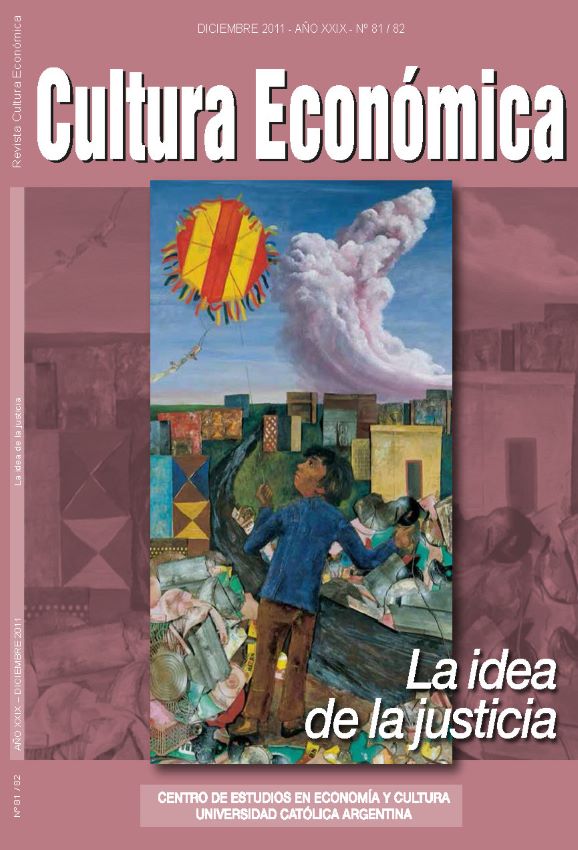El código ético en la profesión del contador público
Palabras clave:
ETHICS, PROFESSIONAL RESPONSIBILITY, PROFESSIONAL ETHICS, CODE OF ETHICS, PUBLIC ACCOUNTANTResumen
El artículo versa sobre la responsabilidad ética que debe regir en todo tipo de profesión, y se centra en el análisis del código ético en el desempeño del contador público. El Código de Conducta Profesional del Instituto Americano de Contadores Públicos Certificados (AICPA)
es la guía primaria de los contadores públicos en ejercicio público, y el artículo expone los usos a los que sirve el código. Asimismo, el autor analiza distintas situaciones en que el código debe ser aplicado y explica el modo en que se realiza. Para finalizar, Jamnik describe los problemas que encuentra en el código y el modo en que considera que podrían solucionarse para hacer que la profesión sea más fidedigna.
Descargas
Citas
Abbott, A. (1988). The System of Professions: An Essay on the Division of Expert Labor. Chicago, IL, University of Chicago Press.
AICPA (1988). Code of Professional Conduct. AICPA, New York.
AICPA (1997). Joint Ethics Enforcement Program (JEEP). Manual of Procedures. New York.
AICPA Auditing Standards Board (1997). Statement on Auditing Standards No. 82: Consideration of Frau in a Financial Statement Audit. New York.
AICPA. CPA Vision Project (1998) “CPA vision project identifies top five core values”. The CPA Letter l, June, 9.
Cohen, R., Pant, L.W. (1991). “Beyond bean counting: Establishing high ethical standards in the public accounting profession”. Journal of Business Ethics, 10, 45-56.
Collins, A., Schulz, N. (1995). “A critical examination of the AICPA Code of Professional Conduct”. Journal of Business Ethics, 14, 31-41.
COSO (1992). Internal Control: Integrated Framework. Harborside, NJ.
Elliott, R. K., Pallais, D. M. (1997) “First: Know your market”. Journal of Accountancy, July, 56-63.
Epstein, M. J. and Spalding, A. D. (1993) The Accountant’s Guide to Legal Liability and Ethics. MA, Irwin, Boston.
Finn, D. W., Chenko, L. B., Hunt, S. D. (1988). “Ethical problems in public accounting: The view from the top”, Journal of Business Ethics, 7, 605-15.
Haberman, L. D. (1998). “Regulatory reform at NASBA.” Journal of Accountancy. February, 16-17.
KPMG (1996) Innovating Best Ethical Practices. Montvalle, NJ.
KPMG, Marwick, Peat (1997). “Creating the moral organization.” KPMG Internet Web Site. Montvalle, NJ.
KPMG, Marwick, Peat, LLP. MacDonald, E. (1997) “Trustee files $4 billion lawsuit against Ernst & Young.” The Wall Street Journal, December 2, 240, B12.
Mason, E. (1994). “Public accounting: No longer a profession?” The CPA Journal, 64(6) July, 34-7.
Mintz, S. (1990) Cases in Accounting Ethics and Professionalism. McGraw-Hill, New York.
Neale, A. (1996) “Conduct, misconduct and accounting.” Journal of Business Ethics, 15, 219-26.
News Report (1995) “New era in ethics enforcement.” Journal of Accountancy, August, 13.
Pallais, D. (1996) “Assurance services: Where we are; where we’re going.” Journal of Accountancy, 182(3) September, 16-17.
Preston, A. M., Cooper, D. J., Scarbrough, D. P. (1995)” Changes in the code of ethics of the US accounting profession, 1917 and 1988: The continual quest for legitimization.” Accounting, Organizations and Society, August, 507-46.
Ruble, M. R. (1997) “Letter from the state board: What should you do next?” Journal of Accountancy, 183(5) May, 75.
The Cohen Commission (1978). “Report, Conclusions, and Recommendations.” AICPA, New York, The New York Times, December 27, 1997:147, B147.
The Treadway Commission (1987) Report of the National Commission on Fraudulent Financial Reporting. AICPA, New York.
US Senate Subcommittee on Reports, Accounting and Management of the Committee on Governmental Affairs; the Metcalf Committee (1976). The Accounting Establishment.
US Government Printing Office, Washington DC. US Senate; the Moss Committee (1978) Report of the Committee on Auditors’ Responsibilities. US Government Printing Office, Washington DC.
Descargas
Publicado
Cómo citar
Número
Sección
Licencia













